STUDY | EXPLORE | ADVOCATE
challenge your understanding and impact the world
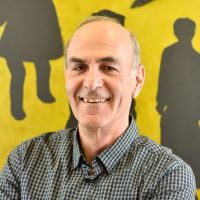 E-mail: This email address is being protected from spambots. You need JavaScript enabled to view it.
E-mail: This email address is being protected from spambots. You need JavaScript enabled to view it.
Professor Arieh J. Kochavi is a Full Professor of Modern History at the University of Haifa, Israel. He is the Head of the Weiss-Livnat International Center for Holocaust Research and Education as well as the Weiss-Livnat International MA Program in Holocaust Studies. Prof. Kochavi is also the Chair of the Editorial Board for The Journal of Holocaust Research and Head of the Dr. Reuven Hecht Chair in History. Prof. Kochavi has published over fifty scholarly articles and five books; Displaced Persons and International Politics (1992), (Hebrew), Prelude to Nuremberg: Allied War Crimes Policy and the Question of Punishment (1998), Post-Holocaust Politics: Britain, the United States and Jewish Refugees, 1945-1948 (2001), Confronting Captivity: Britain, the United States, and their POWs in Nazi Germany (2005), and The Road to Nuremberg Trials (2006) (Hebrew). Post-Holocaust Politics: Britain, the United States and Jewish Refugees, 1945-1948 won the Buchman Prize of Yad Vashem.
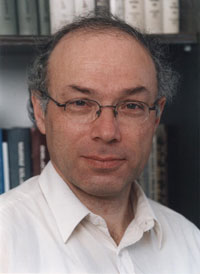 E-mail: This email address is being protected from spambots. You need JavaScript enabled to view it.
E-mail: This email address is being protected from spambots. You need JavaScript enabled to view it.
Professor Dan Michman is Head of the International Institute for Holocaust Research and Incumbent of the John Najmann Chair of Holocaust Studies. He is also Emeritus Professor of Modern Jewish History, Chair of the Arnold and Leona Finkler Institute of Holocaust Research and Incumbent of the Abraham and Edita Spiegel Family Chair in Holocaust Research at Bar-Ilan University. he studied Jewish history and Hebrew linguistics at the Hebrew University of Jerusalem, where he earned his doctorate in 1978 by writing a dissertation on “Jewish Refugees from Germany in The Netherlands, 1933–1940”. In 1976 he joined the faculty of the Department of Jewish History at Bar-Ilan University, teaching and researching in the field of modern Jewish history in general and in the Shoah in particular. Professor Michman has published numerous books and articles in a variety of languages on the history of Dutch and Belgian Jewry, Israeli society, and mostly on various aspects of the Shoah—historiography, ghettos, Judenräte and Jewish leadership, Jewish religious life, problems of Jewish refugees and migration, resistance, Western Europe, the survivors, the impact of the Shoah on Israeli society and religious Jewry, and more.
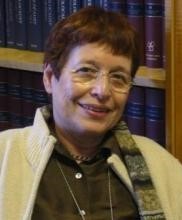 E-mail: This email address is being protected from spambots. You need JavaScript enabled to view it.
E-mail: This email address is being protected from spambots. You need JavaScript enabled to view it.
Professor Hagit Lavsky is the Samuel L. And Perry Haber Professor Emerita in Post-Holocaust Studies in the Department of Jewish History and Contemporary Jewry at the Hebrew University of Jerusalem. Since 2011 she teaches within and serves as the Academic Advisor of the Weiss-Livnat International MA Program in Holocaust Studies at the University of Haifa. She specializes in History of Zionism and the Yishuv, Interwar Jewish migration, Jews in Germany in the 20th Century, and Holocaust Survivor Experiences. Her current research focuses on Zionist activity under the Nazi regime and on various aspects of Jewish emigration from Nazi Germany. Her most recent book, The Creation of the German-Jewish Diaspora: Interwar German-Jewish Immigration to Palestine, the USA, and England, was published in 2017.
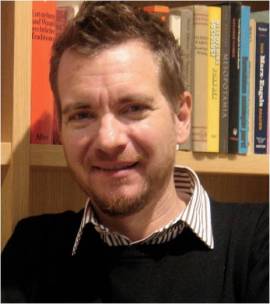 E-mail: This email address is being protected from spambots. You need JavaScript enabled to view it.
E-mail: This email address is being protected from spambots. You need JavaScript enabled to view it.
Stefan Ihrig is a professor of history at the University of Haifa. He works on various aspects of European and Middle Eastern history with an interest in the media as well as political and social discourses. Prof. Ihrig received his Ph.D. in History fro the University of Cambridge. Formerly, Prof. Ihrig was a Polonsky Fellow at the Van Leer Jerusalem Institute, a lecturer at the University of Regensburg and the Free University Berlin, as well as researcher and project assistant at the Georg Eckert Institute, Braunschweig. His most recent book is Justifying Genocide – Germany and the Armenians from Bismarck to Hitler (Harvard University Press, 2016). His previous book, Ataturk in the Nazi Imagination (Belknap Press/Harvard University Press, 2014), received an official commendation in the 2013 Fraenkel Prize Competition of the Wiener Library for the Study of the Holocaust and Genocide.
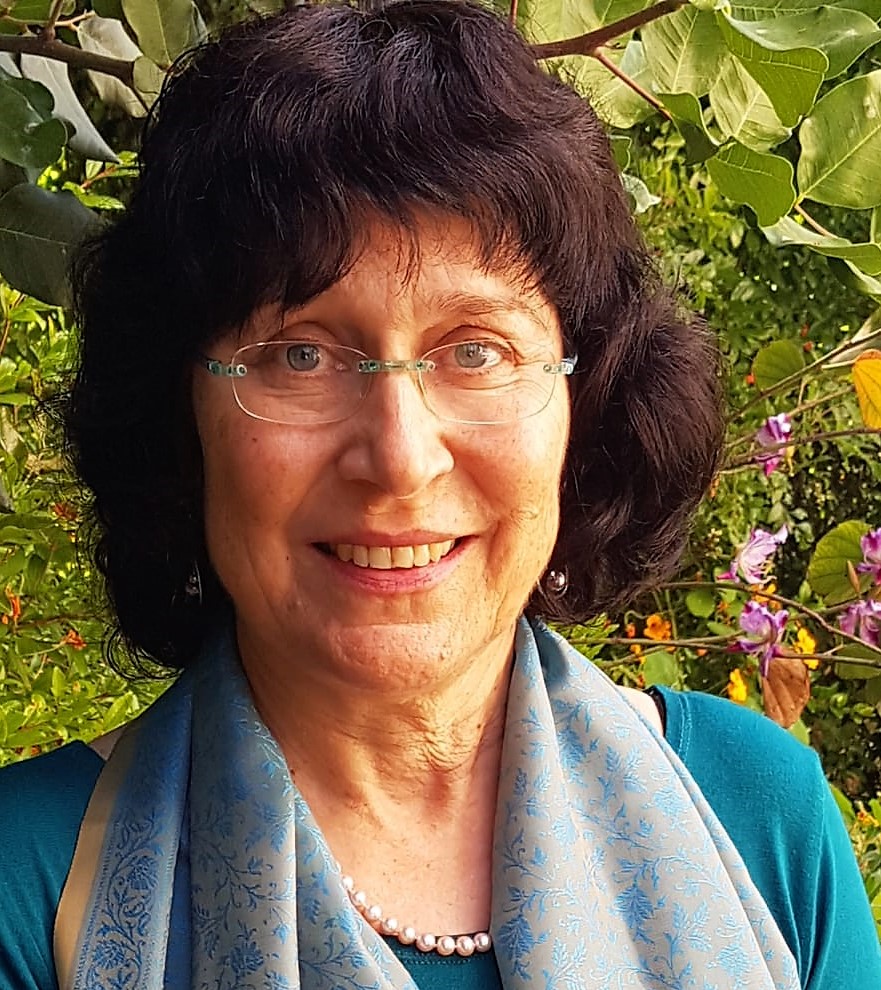 E-mail: This email address is being protected from spambots. You need JavaScript enabled to view it.
E-mail: This email address is being protected from spambots. You need JavaScript enabled to view it.
Professor Hadas Wiseman is Professor in the Department of Counseling and Human Development, Faculty of Education, and in the Weiss-Livnat International MA Program in Holocaust Studies, University of Haifa, Israel. In the Holocaust studies program, she teaches a course on ‘Psychological aspects of the memory of the Holocaust.’ She has been studying intergenerational processes in families of Holocaust survivors. She is the senior author (with Jacques P. Barber) of Echoes of the Trauma: Relational Themes and Emotions in Children of Holocaust Survivors (New York: Cambridge University Press, 2008). She published articles and chapters on intergenerational communication patterns among child survivors, children and grandchildren of survivors (with Adi Duchin), and children of rescuer of Jews during the Holocaust (with Lilach Ashoulin). Professor Wiseman is a certified clinical psychologist and a psychotherapy researcher and was formerly President of the Society for Psychotherapy Research (SPR). She is co-editor (with Orya Tishby) of The Therapeutic Relationship: Innovative Investigations (New York: Routledge, 2015); and of Developing the Therapeutic Relationship: Integrating Case Studies, Research and Practice (Washington: American Psychological Association, 2018). Through the years, she has presented her work on intergenerational effects of the Holocaust in Vancouver and Toronto, Canada; in Melbourne, Australia; in New York, USA and in Buenos Aires, Argentina. She was a Visiting Professor at the Department of Counseling Psychology, Faculty of Education, Simon Fraser University, Canada; and at Applied Psychology and Human Development, OISE, University of Toronto, Canada.
 E-mail: This email address is being protected from spambots. You need JavaScript enabled to view it.
E-mail: This email address is being protected from spambots. You need JavaScript enabled to view it.
Prof. Carol A. Kidron is an Associate Professor in the Department of Anthropology at the University of Haifa, Israel. Kidron has undertaken comparative ethnographic work with Holocaust descendants in Israel and children of Cambodian genocide survivors in Cambodia and Canada. She has focused on the interface between private and public Holocaust and Genocide memory work in Israel, Canada, and Cambodia, aiming primarily to re-conceptualize trauma descendant lived memory of difficult pasts as silent intersubjective embodied and emotive presence. Kidron has examined ways in which universalizing epistemological frames (psychological illness construct of PTSD, Genocide Studies, Culture Studies (trauma theory) Human Rights and the more recent moral anthropology) discursively elide the private and familial experience of presence while facilitating the public appropriation and translation of private memory into either public niches of domesticated representation of lived memory or ‘dead’ forms of politicized absence. Beyond her interest in personal and collective Holocaust and Genocide commemoration, Kidron's more recent research examines the glocalization of discourses on justice and reconciliation, victimhood, and memory in post-conflict societies. Her present field work in Cambodia explores processes of localization and friction in local-global encounters and the multi-layered responses to hegemonically imposed memorialization, organic forms of genocide commemoration and atrocity tourism
University of Haifa
Address: 199 Aba Khoushy Ave.
Mount Carmel, Haifa
Israel 3498838
Tel: 972 (0)4 8240111
aweiner@univ.haifa.ac.il